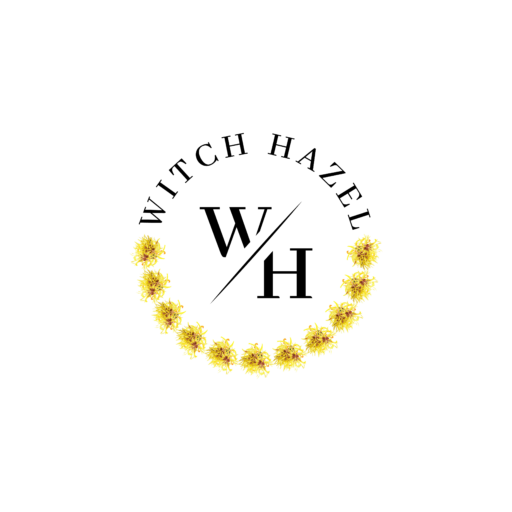
Witch hazel, a long-time mainstay of the beauty business, has been in and out of favor with experts, but according to Pinterest, searches are up 305 percent, indicating a surge in interest right now. Everything you need to know about witch hazel, including what it is, how it works, and how to use it as a toner, is right here.
So, first and foremost, what is it? Witch hazel is made from a blooming plant native to North America and Japan called Hammamelis virginiana. The shrub’s leaves, bark, and twigs are used to make a liquid known as witch hazel, which is used in medicine and cosmetics.
There are various advantages as well. These include calming effects, anti-inflammatory capabilities, and antioxidant characteristics.
Because of its astringent nature, witch hazel can assist with tightening pores to firming the skin (at higher doses). Witch hazel is a frequent ingredient in skin care products for oily or mixed skin since it can help to regulate and manage oil production. Witch hazel, on the other hand, is helpful for more than simply skincare. It may be used for various things, from reducing dandruff to healing sunburns and insect bites.
Pioneers in the field of skincare Witch hazel is described as “a great natural toner that helps to tighten pores” by Simple. Indeed, the substance has a reputation for being an excellent toner, especially for oily skin. Witch hazel-based formulas can be applied to the skin with a cotton pad after cleansing and before serums and moisturizers.
Witch hazel, on the other hand, can be drying and astringent, so use caution.
Short-term usage of witch hazel can be beneficial to the skin, but long-term use is problematic regardless of skin type or issue.
With this in mind, instead of applying witch hazel every day, It is recommended to use it up to four times a week to give your skin a rest. Instead of using plain witch hazel, consider one of the following formulas, including ingredients like rose, aloe vera, and tea tree.
The Benefits and Uses of Witch Hazel
Regular lotions and oils to more creative items like mud masks, or other household materials can be used as beauty treatments and cures for acne or other types of skin. Our moms and dads taught us how to treat a zit or any sort of skin blemish using age-old methods. Do you nourish your skin with avocados or dry it off with toothpaste? Witch hazel is a popular household substance that may be used for various medicinal purposes, including aesthetics. It has been used for millennia and has a wide range of applications. Here are some various methods to utilize witch hazel and the benefits it offers for your skin.
Because it is produced from a plant prevalent in that area, witch hazel was initially utilized by North American Indians and southern Americans. Hemorrhaging or internal bleeding, sprains, eye inflammation, skin inflammation, and malignancies were treated with it initially. For ages, it has been recognized that plant extract is one of the greatest things to use as an astringent.
It can be used to cure skin flaws, wounds, veins, hemorrhoids, bug bites, and bruises on the outside. Simply apply witch hazel on the area that needs to be treated. Most witch hazel sold at drugstores contains alcohol, which can dry up your skin or irritate it. You might not need the alcohol in the product depending on what you’re using it for.
Witch hazel without alcohol is more helpful for treating eczema or very dry skin, toning your skin, or cleansing a wound. Because alcohol may severely hurt if you’re cleaning a cut, the alcohol-free version is a better alternative for youngsters. If you’re not treating acne but want to use it as a cosmetic product on your face, I’d go with the alcohol-free version to avoid drying out your skin. This is the best choice for healing burns or very dry skin because most alcohol-free witch hazel contains moisturizers like Aloe Vera or essential oils. It may be used to tighten pores and tone your skin, giving your complexion a lovely glow.
As a common household component, this product should be maintained in your home. Other frequent applications for it include treating skin flaws, inflammation, and internal issues. The lotion may be used to cure razor burn, relieve pain from wind or sunburn, remove make-up, and reduce swelling from a bug bite.
Witch hazel maintains the skin’s health and radiance. Healthy skin seems silky, vibrant, and firm. It tightens skin cells and decreases pore size when used as a face toner, resulting in a smooth, flawless finish. The natural stimulating and anti-inflammatory qualities decrease swelling and promote circulation near the skin’s surface. At the same time, the astringent characteristics wipe away excess oils and dead skin cells to freshen and brighten your skin. Applying this natural extract on your face and body may help maintain your skin healthy and shining while also mending small problem areas.
A witch hazel face toner is excellent for skin that needs extra healing. It was once used to cure various skin conditions and remains prized for its external healing powers. It has traditionally been used to clean and cure wounds such as bedsores, bug bites, cuts, and cracked skin. Poison ivy and poison oak, psoriasis, eczema, and other skin rashes can benefit from anti-inflammatory qualities. Witch hazel’s deep cleansing properties and its antimicrobial, antifungal, and antibacterial properties help clear up blemishes and infections. Its extract’s stimulating properties might also aid in revitalizing fatigued muscles and mend injuries.

